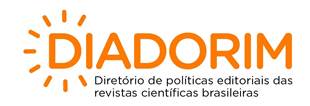Migraine aura: results from an art contest
Views: 847DOI:
https://doi.org/10.48208/HeadacheMed.2020.4Keywords:
migraine, aura, advocacyAbstract
Introduction: Migraine is a common primary headache and a major cause of disability. In at least a third of migraine attacks, the headache is preceded and/or accompanied by aura and the visual manifestation is the most frequent phenotype. Migraine with aura, a subtype of migraine disorder, are underdiagnosed and undertreated. So, a detailed aura iconography is important for better recognition, prevention and treatment of migraine with aura. Objective: A visual aura art contest was performed by ABRACES (Brazilian Association of Cluster Headaches and Migraines), in order to provide new images for raising awareness among population and professionals and decreasing the gap between diagnosis and treatment. Methods: The contest involved free subscription of drawings, paintings and digital art that expressed realistic results of a visual aura of migraine and answering of a questionnaire. The awards were separated in two categories (painting/drawing and digital art/photography) and amounted up to R$ 5,000. Results: There were 139 participants, 24% men and 76% women. The most common visual aura’s characteristic was the presence of colorful points, and the less frequently was golden. The mean duration of visual aura was 110.6 minutes (450.5 of standard deviation), median of 20 minutes, minimum of 1 minute and maximum of 3600 minutes. 36.7% of the subscribers have only one kind of visual aura and 33.8% answered that have more than one kind. 46,5% said that their visual aura almost never occurs without pain after or while aura and 19% reported that their visual aura always occurs without a headache. Conclusion: Art contests are useful tools for disease awareness. Further actions in disseminating aura images may help migraine aura underdiagnosis and undertreatment.
Downloads
Published
How to Cite
Issue
Section
License
Copyright (c) 2020 Headache Medicine

This work is licensed under a Creative Commons Attribution 4.0 International License.













